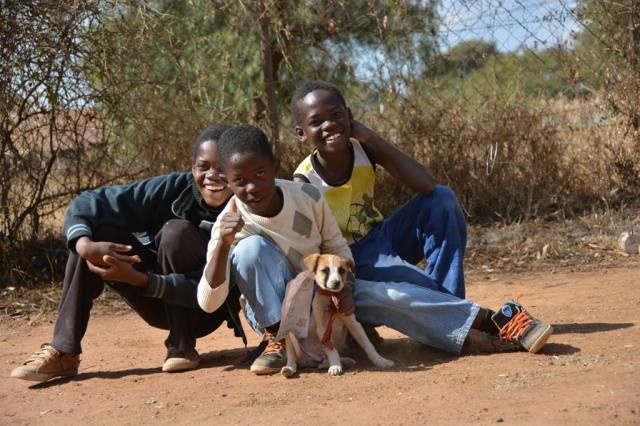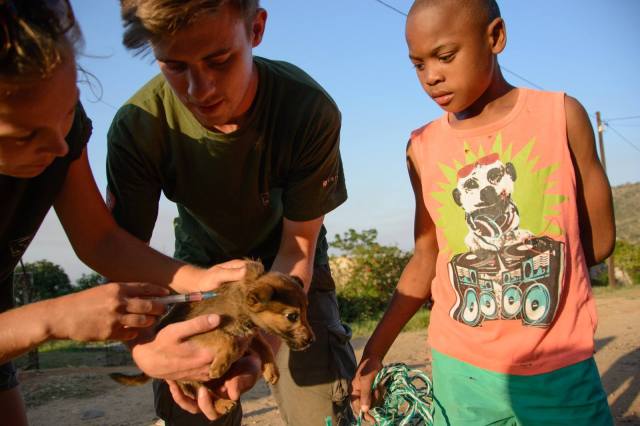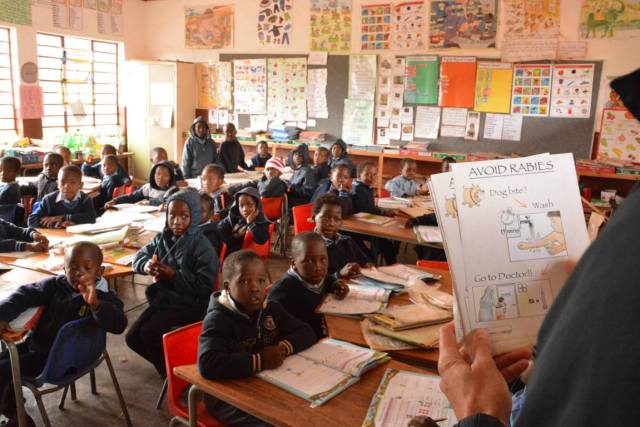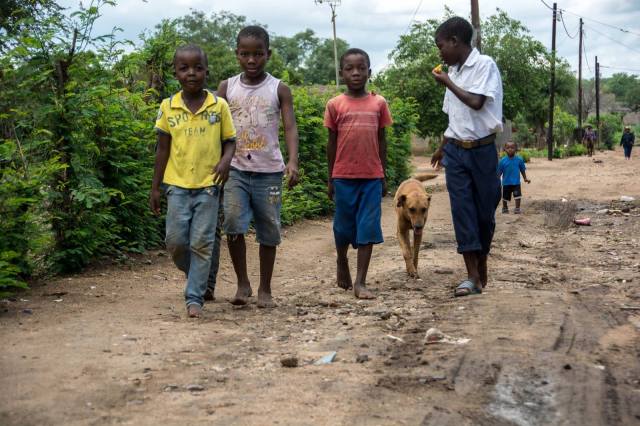Home \ Knowledge Hub \ Opinion \ Eliminating Rabies, One Health in Action – Thoughts from the Podcast


02 Nov 2021
Eliminating Rabies, One Health in Action – Thoughts from the Podcast
SHARE

MARTA NOWAK
Marketing Lead, International Veterinary Health
Recently, for the occasion of World Rabies Day, we had the honour to speak to Dr Monique Eloit, Director General of the World Organisation for Animal Health (OIE), and Dr Bernadette Abela-Ridder, Team Leader for Neglected Zoonotic Diseases at the World Health Organisation (WHO), on the emergence podcast hosted by Alasdair King, Director of International Veterinary Health, and talk about their views on rabies elimination and One Health. They have been major figures in global rabies control as the world has been trying to eliminate the disease that continues to kill almost 60,000 people every year, both driven by a deep desire to reduce the suffering in the world. It was a great privilege to be able to hear what they find important to stop human deaths from dog transmitted rabies by 2030. Today, we look back at some of the thoughts they shared with us.

We know what to do, all we need is to act
The take-home message was one of hope and confidence. As Bernadette told us:
“Rabies is a disease that we can overcome. We do not have to have deaths any more from rabies. We have all the tools that are needed. We know how to eliminate this disease, we just need to scale up our efforts.”
When asked what gives her the confidence that we can eliminate rabies, Monique replied:
“I am confident because we have evidence that it is possible!” and added “We have a direct impact of the vaccination campaign in dogs on human health. We have excellent vaccines. And with long standing commitment, we can eliminate rabies. It is not just a wish; it can be a reality because we have clear data that it is possible.”
That confidence comes from the experience in countries who did manage to control this disease. While some countries are only learning how to implement rabies programs, others have already done a lot of progress, and the exchange of that expertise is crucial, setting an example for the others to follow.

From barriers to partnerships
Over the years, rabies control has faced many struggles due to competing priorities.
“One of the biggest problems is that it’s not prioritized in many countries”, said Bernadette. As a disease that affects both animals and people, rabies sits right between the public and animal health sectors. “One of the difficult parts is that it’s the dogs that transmit rabies. Nobody feels the ownership of the dogs”, she continues.
But when priorities are aligned, then it is possible to make progress, like in Europe and North America that have been successful in keeping rabies out of the dog population, and people.
Thankfully, a lot has changed over the last years and it is very encouraging to see that “more and more authorities have rabies on the top of their priorities” – said Monique, glad to see that the United Against Rabies partnership of the OIE, WHO and FAO, have played a role in driving the change.
Both Monique and Bernadette are strong supporters of partnership, which they believe, has the power to overcome the biggest barriers.
According to Monique “We have barriers, but when we are convinced that we can succeed, that together we are strong enough, then we have the power to convince people who can support”. Human and animal health sectors collaborating along the vaccine manufacturers, NGOs, and local communities, is how we can make leaps towards the elimination.
A model for One Health
With an increased public recognition of the interaction between humans, animals and the environment, rabies especially makes a strong case for One Health approach.
“If there is one disease that we can show quick progress, which we can use as a poster child for implementing One Health, I think rabies is that example. We can really reduce human deaths very quickly”, said Bernadette. A lot of work must still be done to achieve the goal, but rabies control can help build the know-how for other diseases where different sectors also have to work together.

The same holds true for education and engaging with local communities. Bringing in local priorities, and activating people on the ground to build awareness, facilitates working towards broader One Health benefits in the long run.
“When we better educate the population and inform communities, when we support the strengthening of veterinary services, indirectly, we support the control of other diseases, we support the health system”, said Monique.
A call to scale up – “We just need to get on with it”
To Monique, it is clear that “One Health approach must be encouraged and implemented at each level” and she is confident that we are heading in the right direction. “In addition to strategy, tools and data that we have, now we also have political commitment. We have all that we need to succeed and now we need to act”. She stressed that it is time to “move from local initiatives to a larger scale” dog vaccination campaigns, in order to truly build sustainable programs.
This call to action was echoed by Bernadette:
“The biggest barrier is taking it from a pilot- and project-based type of activities into a true program in countries who have prioritized the disease”. She insisted “Let us scale up the rabies programs as an example of implementing One Health in a very measurable way, where we can see impact within months, if we are able to scale up sufficiently”.
There have been a lot of positive changes in the last decade and both our guests are optimistic about the future. Bernadette believes that “We can do it. We just need to get on with it” and make sure that the programs are “translated into a plan on the ground, and that we actually start.”

Are we on track for 2030?
“2030 is a goal that is going to be a challenge to reach”, admits Bernadette, however, it has also “been a way to drive us in the right direction. We set that goal of zero human deaths by 2030 because we all believed it is possible”.
“It was aspirational. What’s important, is that every step we take forward we reduce the number of people who die” agreed Alasdair, “Setting a date gives us something that we can aim for, it gives us a strength to keep on going. Because we know we all got the same vision”, he continued.
Finally, we would like to conclude with the words from Monique – we couldn’t have a better message to share today:
“Rabies elimination, the eradication of dog mediated rabies is achievable. Everybody can do something, the most important is to act, and to invest in rabies control because we know that it is 100% preventable and that we can save so many human lives.
MARTA NOWAK
Marketing Lead, International Veterinary Health
PHOTO CREDITS: CARL SALTER
The views expressed in this article are those of our guests and do not necessarily represent those of MSD Animal Health.

